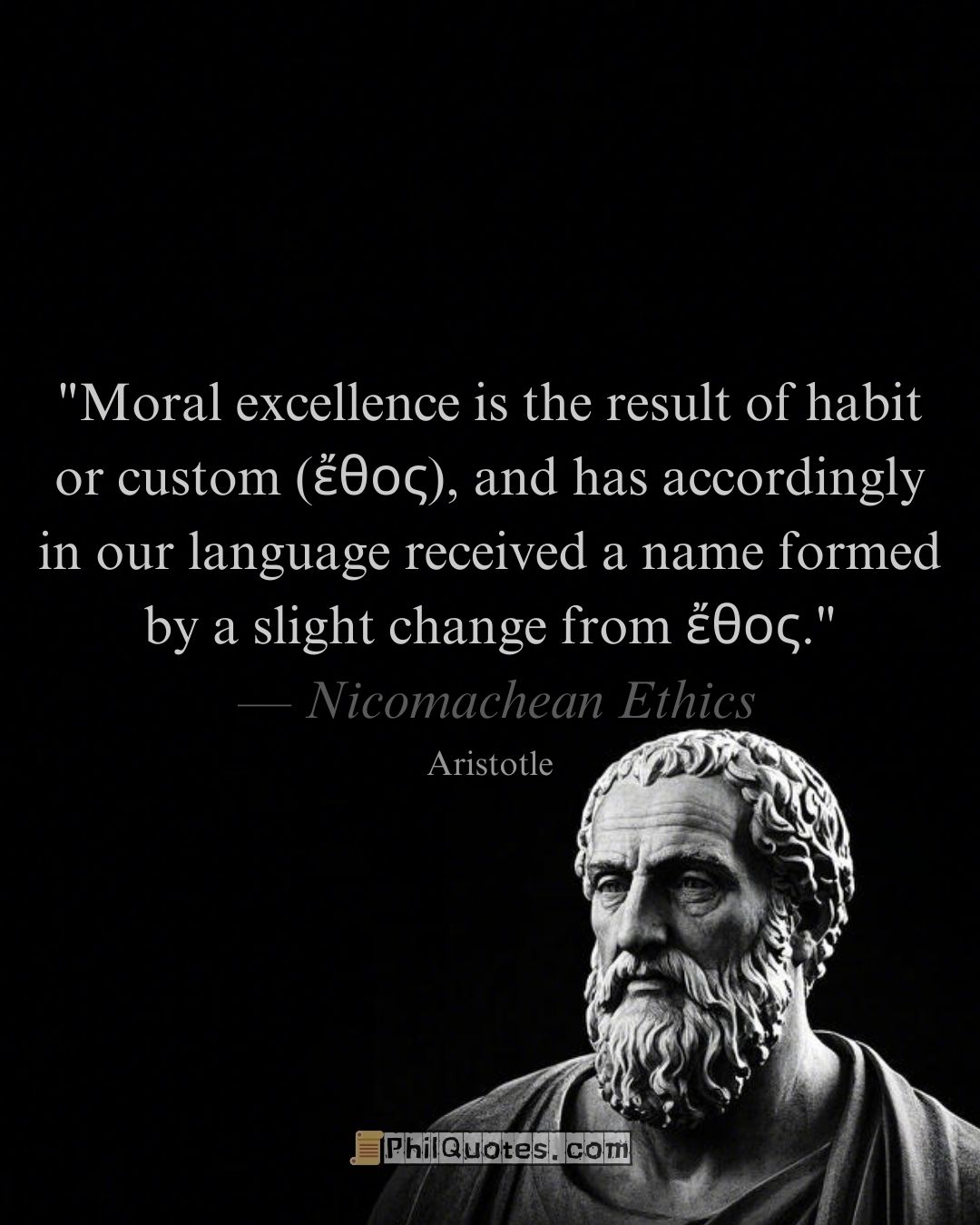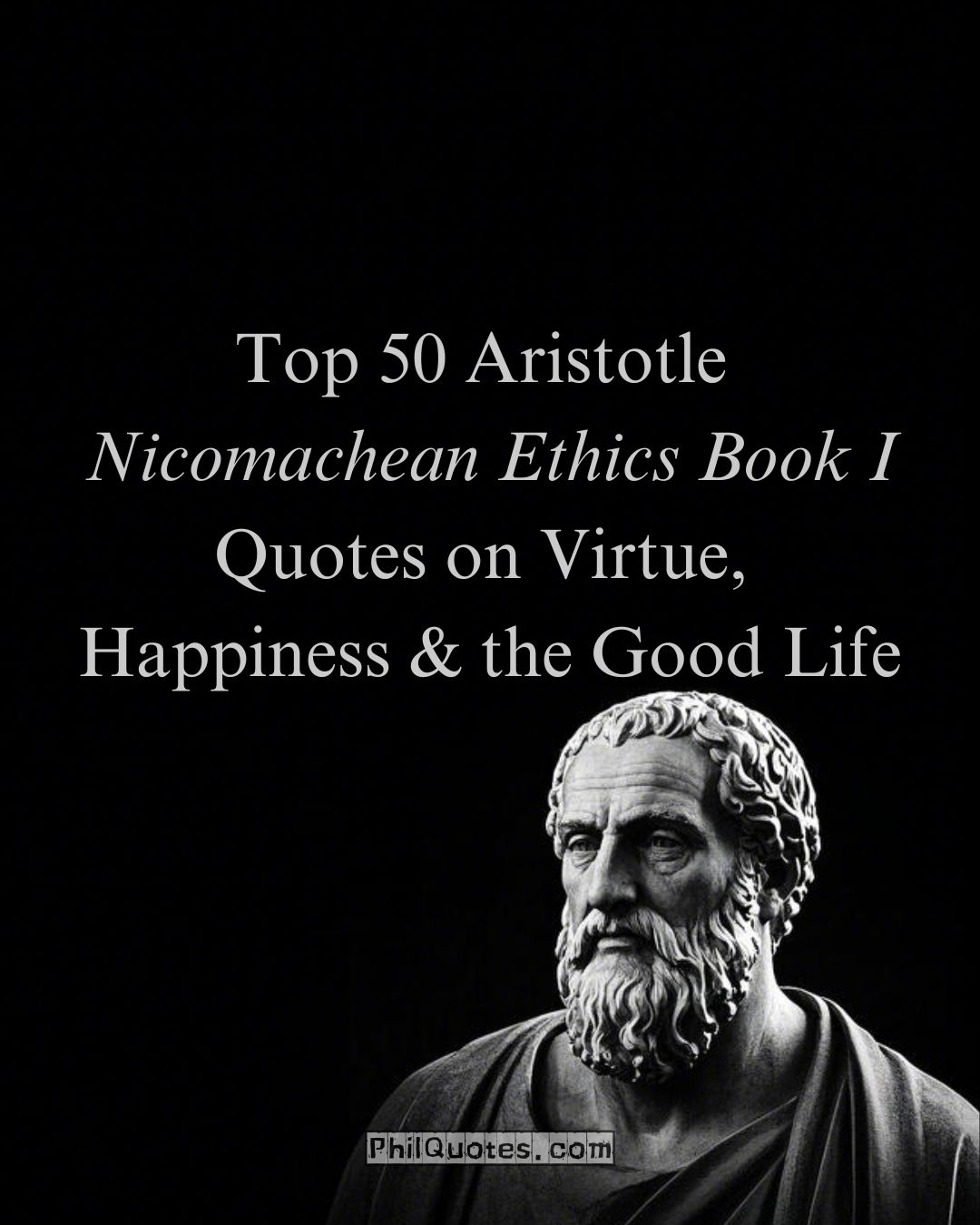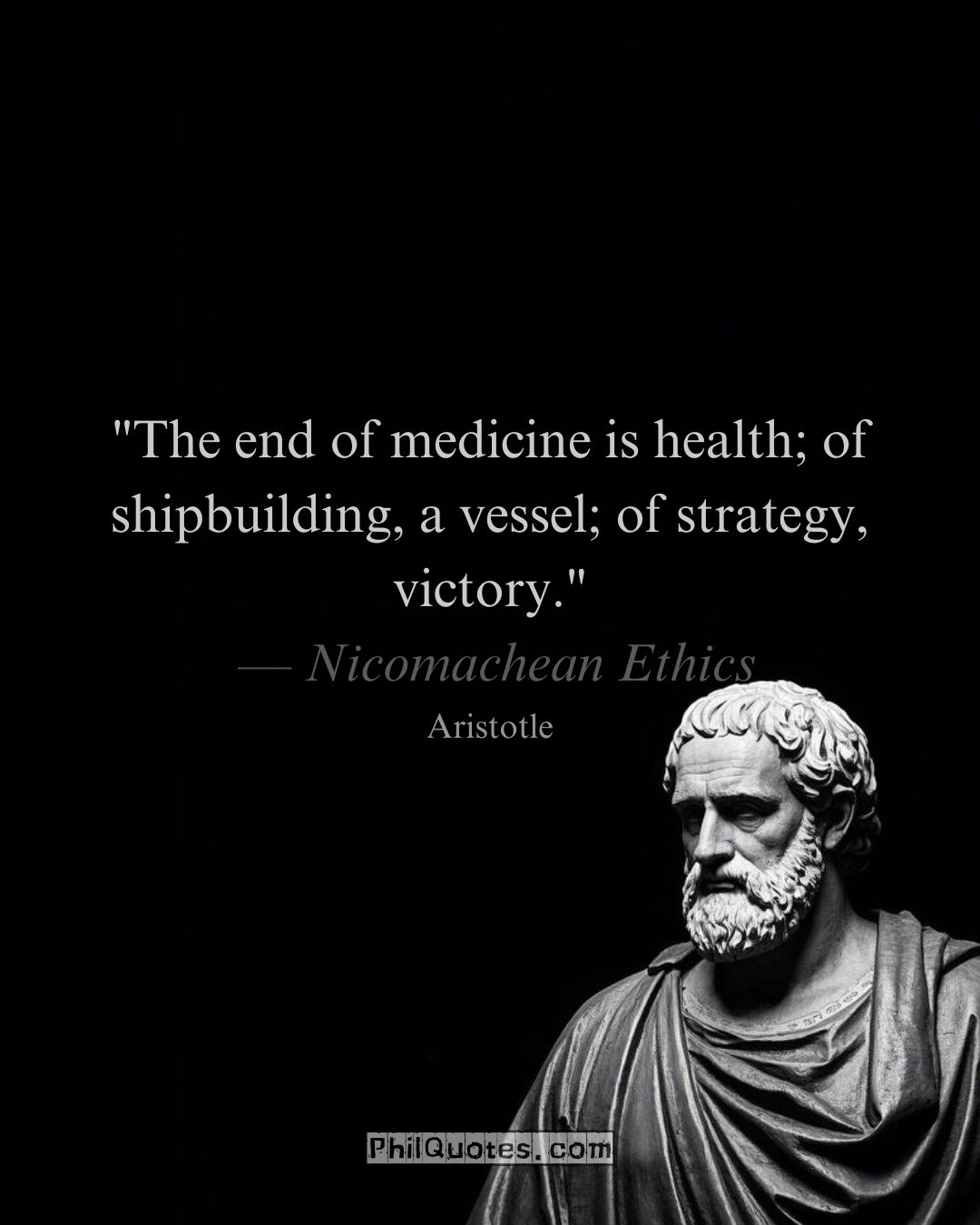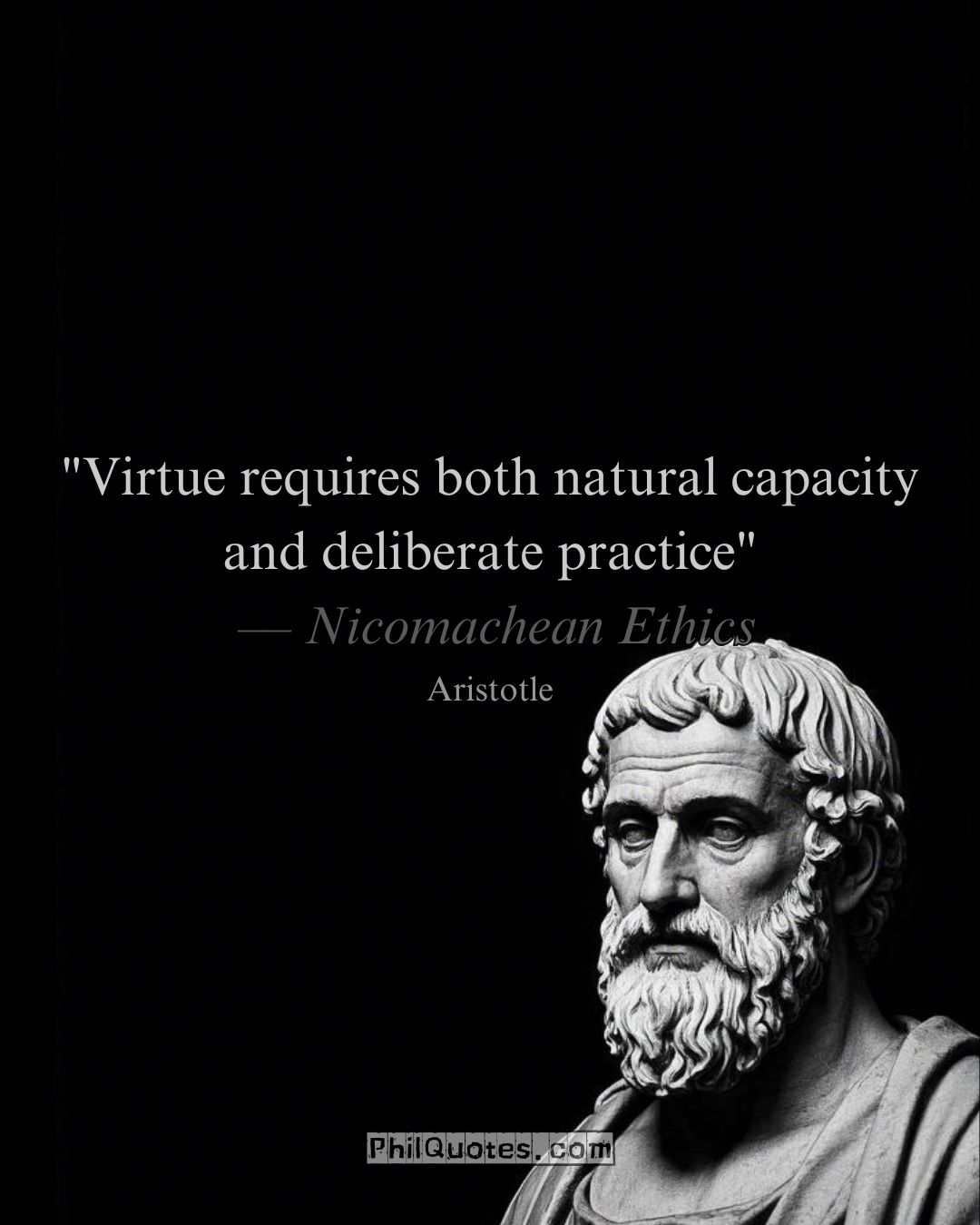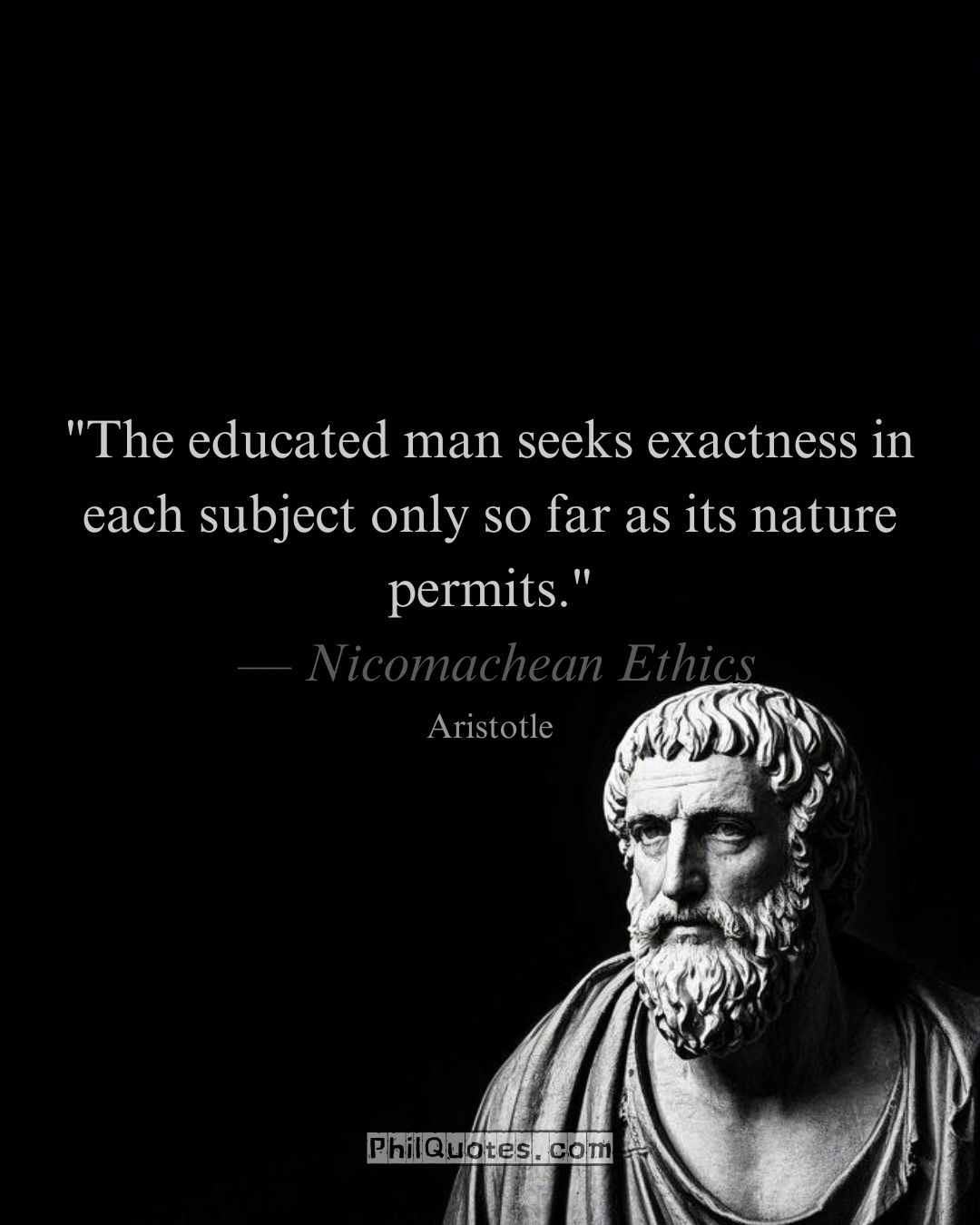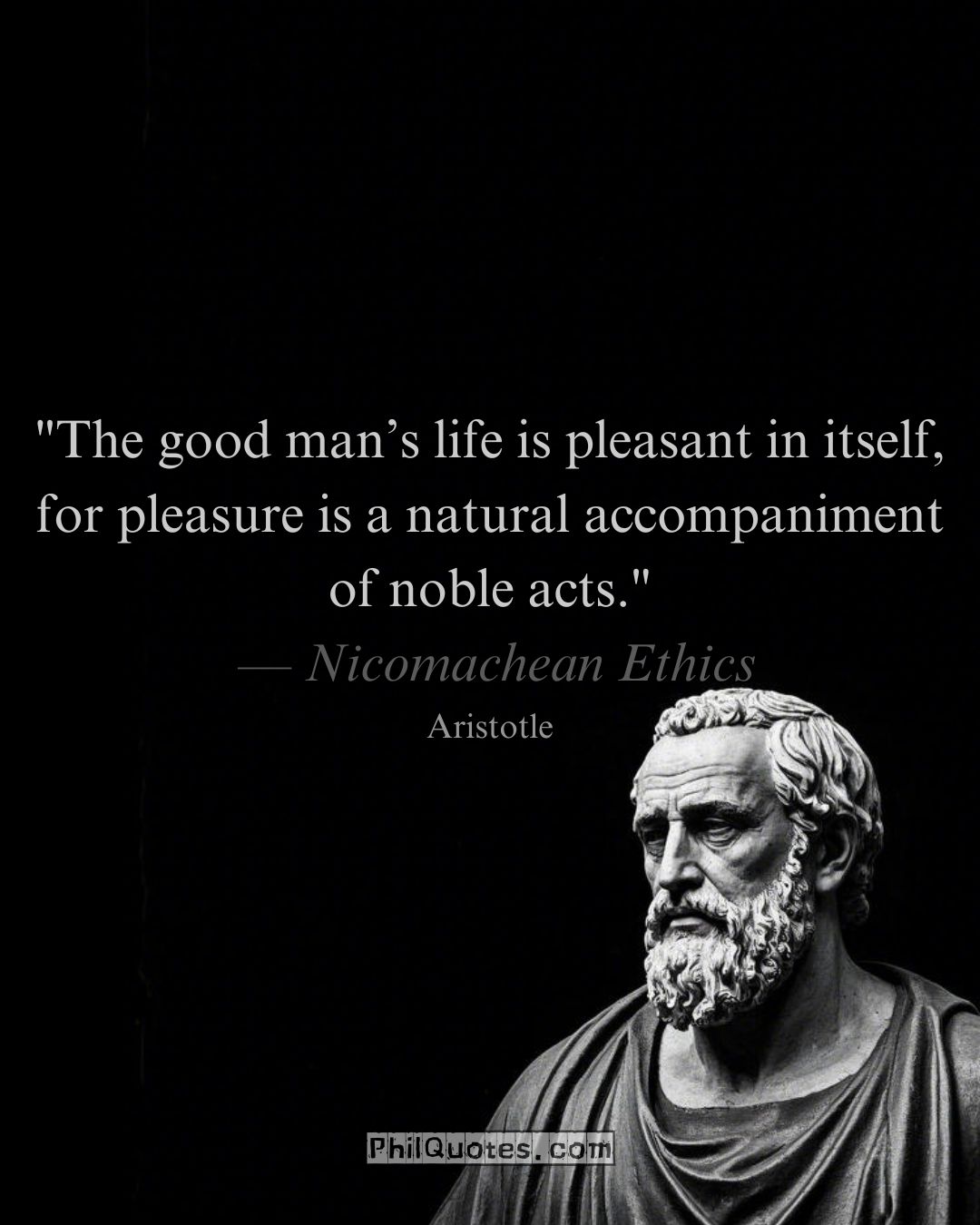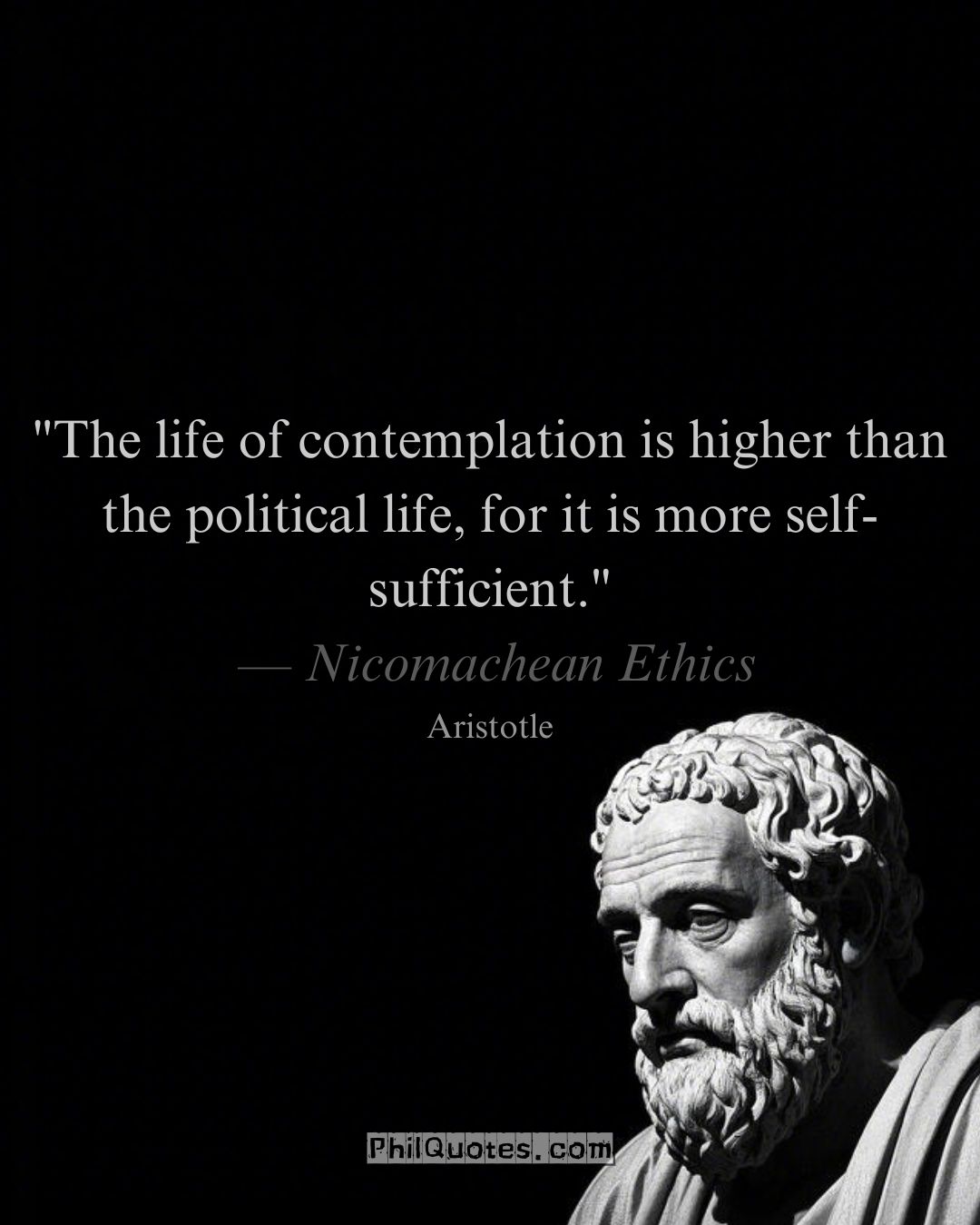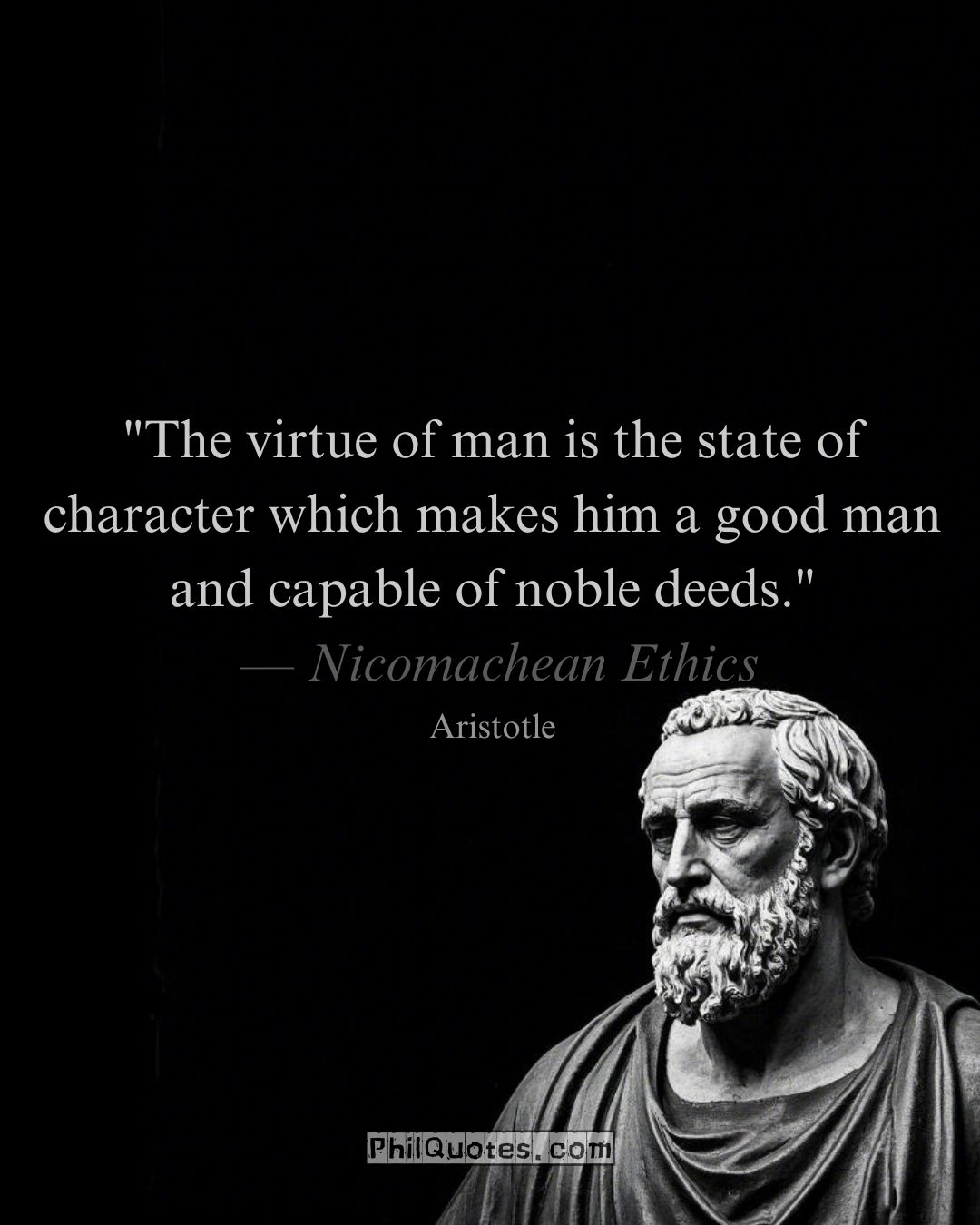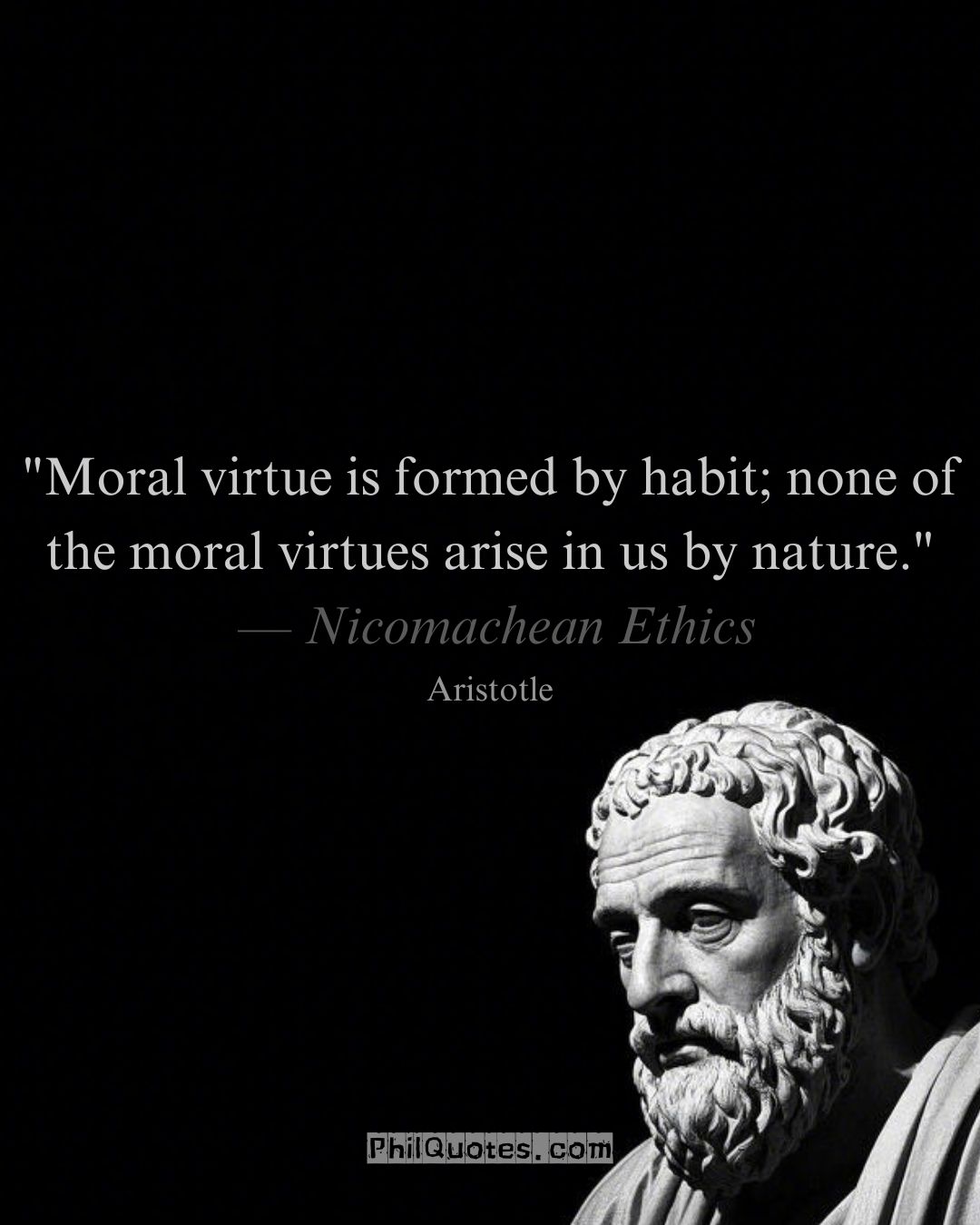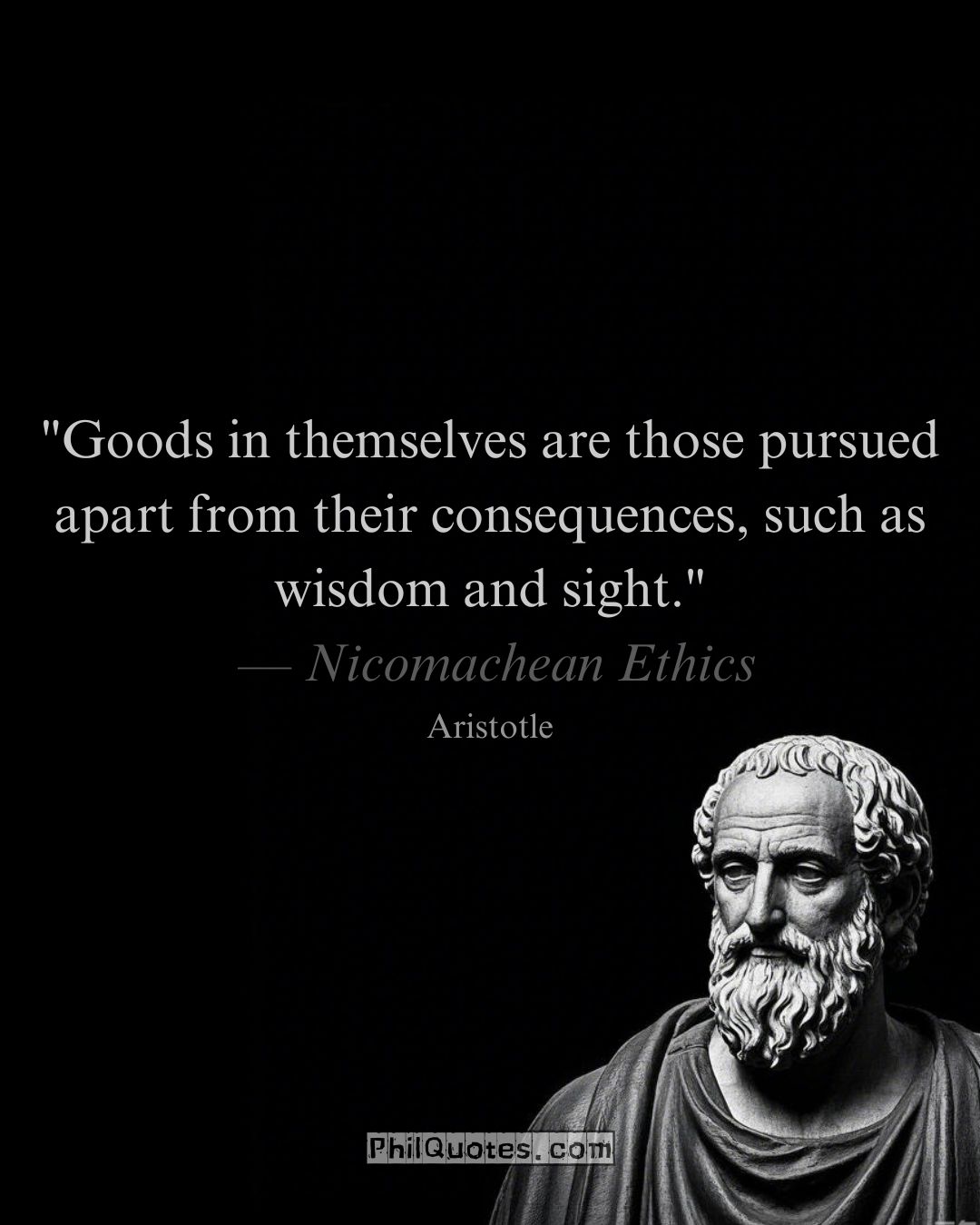Aristotle Nicomachean Ethics Quote: “Moral excellence is the result of habit or custom (ἔθος), and has accordingly in our language received a name formed by a slight change from ἔθος.”
Quote“Moral excellence is the result of habit or custom (ἔθος), and has accordingly in our language received a name formed by a slight change from ἔθος.”— Aristotle, Nicomachean Ethics, Book II, Chapter 1 Core Idea True virtue isn’t about being born “good” – it’s a lifelong practice. Like learning to play guitar through daily chords, … Read more
